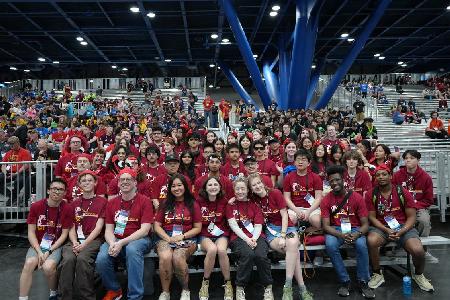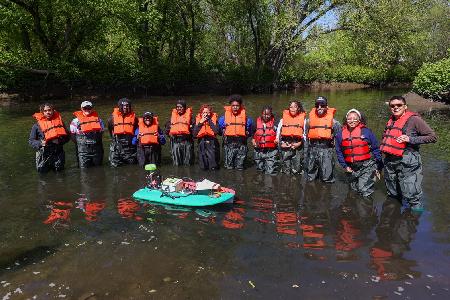University of Pennsylvania students will soon be able to study artificial intelligence from the start of their academic career.
Penn’s School of Engineering and Applied Science announced it was launching a bachelor of science in engineering in AI degree this fall.
“We feel that it’s not only going to prepare students for being leaders and innovators in artificial intelligence,” George Pappas, Penn Engineering professor and head of the new degree program, told Technical.ly, “but also really think about the impact that AI will have on all forms of engineering.”
This is the first AI and engineering undergraduate degree program among Ivy League universities, according to the University of Pennsylvania.
Carnegie Mellon University (CMU) introduced the United States’ first bachelor’s degree in AI in 2018. The options for getting an undergraduate degree in AI range from focused AI programs, like CMU’s program, to declaring a specific concentration within a computer science degree, such as machine learning or robotics. Locally, Penn State offers a master’s degree in AI, and Drexel University offers a master’s program in AI and machine learning.
Penn Engineering’s GRASP Laboratory offers courses in AI and machine learning as part of its robotics master’s degree program. Penn’s School of Engineering and Applied Science offers a master’s in data science that features a curriculum covering the statistical aspects of AI and machine learning. Penn’s College of Liberal and Professional Studies also has a 24-week AI bootcamp.
“This new degree program represents a leap forward for the Penn engineers who will lead in developing and deploying these powerful technologies in service to humanity,” J. Larry Jameson, Penn’s interim president, said in a statement.
This degree program includes courses in machine learning, computing algorithms, data analytics and advanced robotics. Part of building the curriculum for this program included taking courses and concepts from graduate-level classes and making them simpler to digest at the undergraduate level, Pappas said.
The curriculum includes mathematical and computational foundations, AI foundations, and electives that connect artificial intelligence to different forms of engineering. The coursework will also address AI safety, ethics, and how the tech can be used for social good.
Since AI is always changing, the school’s leaders aim to prepare students to adapt their skills to meet the challenges of new technology as it arises, Pappas said.
In the future, Penn Engineering hopes to offer AI minors and dual degree programs to increase opportunities for students to gain expertise in AI and engineering.
“This is part of the broader investment that Penn Engineering is making in AI, including the Amy Gutmann Hall building that will open up this summer,” Pappas said. (The new building will house this degree program.) “All these investments will have [an] impact on students and hopefully the region as well.”
Existing Penn students who want to transfer into the program will be able to apply this spring. Prospective students for fall 2025 will be able to apply for the program in fall 2024.
Sarah Huffman is a 2022-2024 corps member for Report for America, an initiative of The Groundtruth Project that pairs young journalists with local newsrooms. This position is supported by the Lenfest Institute for Journalism.Join the conversation!
Find news, events, jobs and people who share your interests on Technical.ly's open community Slack

Philly daily roundup: Minecraft in a Philly school; PTW kicks off; Tech and art happy hour

Philly daily roundup: Philly's top innovation leaders; City buildings go solar; PTW kicks off on Friday

Philly daily roundup: UPenn's AI master's degree; Advice for EDA Tech Hubs; Last day of ACP



